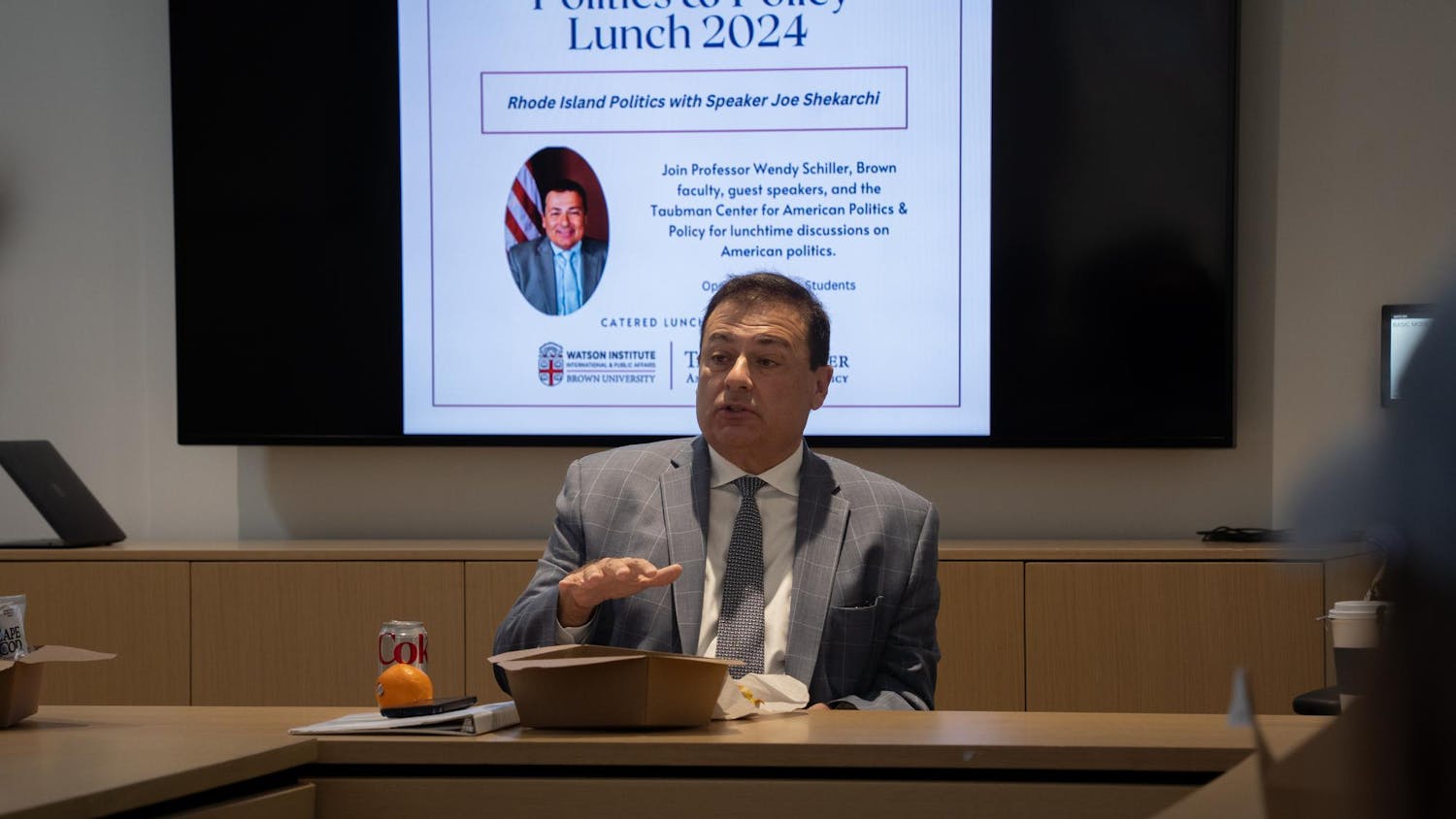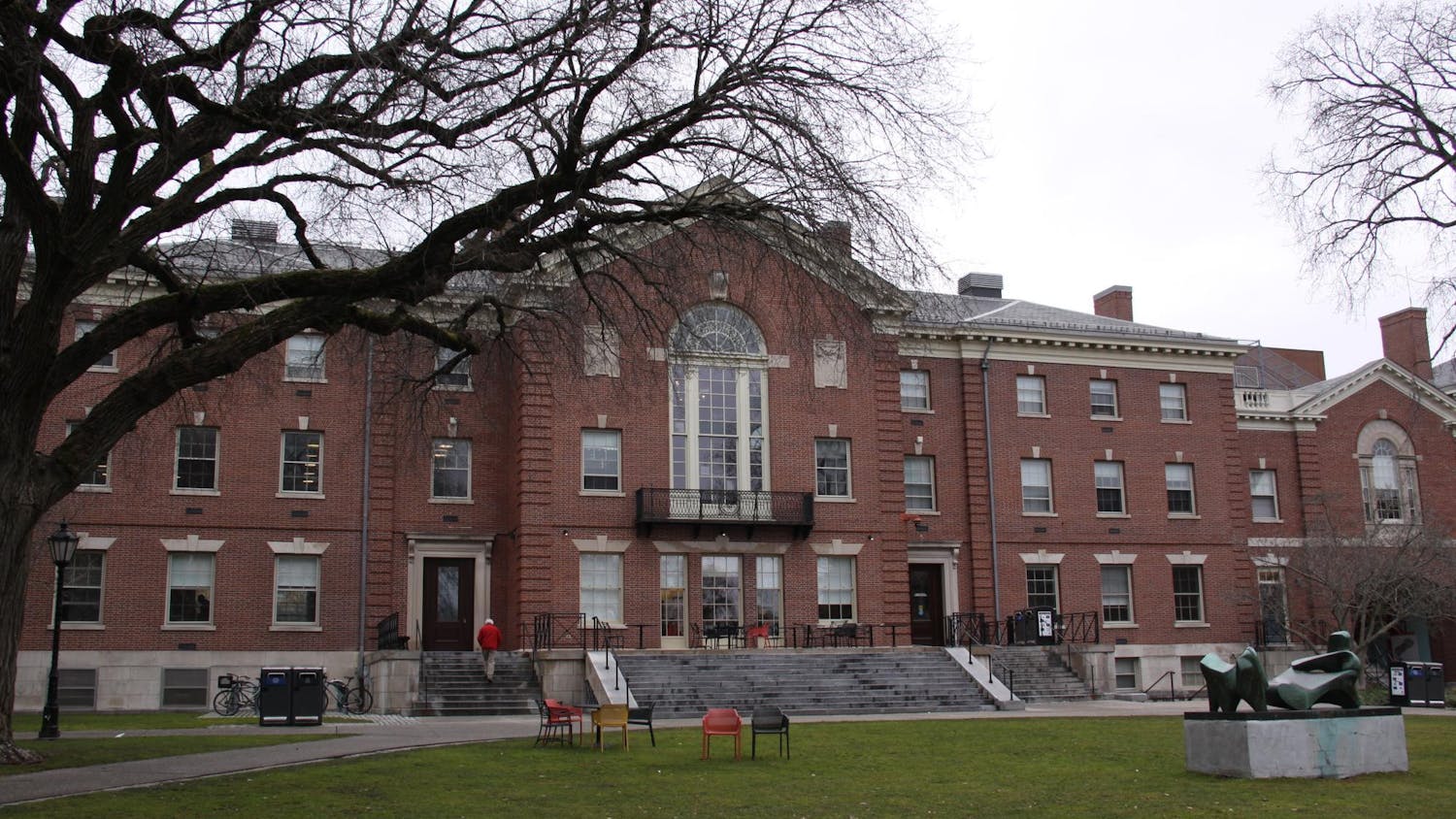The University has narrowed its list of candidates for the directorship of the Watson Institute for International Studies to three contenders - Jeffrey Kopstein, acting director of the Centre for Jewish Studies at the University of Toronto, Allison Stanger, chair of the political science department at Middlebury College and Celeste Wallander, the deputy assistant secretary of defense for Russia, Ukraine and Eurasia. A search committee submitted an unranked list of the three candidates to the provost after interviewing eight semifinalists, said Provost Mark Schlissel P'15.
Schlissel and President Ruth Simmons will make the final decision. It is also possible they will choose none of the candidates, Schlissel said.
The announcement could be made in the upcoming weeks, though a date has not yet been finalized. "It depends when and if we identify a candidate," Schlissel said.
Kopstein is a professor of political science at the University of Toronto, and his research emphasizes comparative politics, ethnic politics and political economy, according to his faculty webpage. He has also served as director at the Centre for European, Russian and Eurasian Studies at the University of Toronto and director of the Central and East European Studies Program at the University of Colorado at Boulder.
Stanger is a professor of international politics and economics at Middlebury College. She recently published a book, "One Nation Under Contract: The Outsourcing of American Power and the Future of Foreign Policy." Previously, she has advised the policy planning staff for the secretary of state and helped write a 2010 review on diplomacy and development, according to her faculty webpage.
Wallander previously worked as a visiting professor at Georgetown University, director of the Russia and Eurasia Program at the Center for Strategic and International Studies and a professor at Harvard.
In their deliberations, the search committee members considered the depth of the candidates' experiences. "We wanted somebody that has relevant expertise as an outstanding scholar or as an outstanding practitioner," Schlissel said.
"In keeping with its charge, the committee sought candidates with a record of institutional leadership who had both academic credentials and at least some experience in the wider world of international affairs," wrote Deputy Provost Joseph Meisel in an email to The Herald.
The new director will collaborate with faculty members to determine the new direction for the Watson Institute, Schlissel said. "In general, Watson will be focusing on international security, but security can be so many things that it will be up to the new director to define what it means," he said. The Watson Institute has struggled in recent years to identify its research focus areas, The Herald reported last April.
"Working closely with the provost and our new president - whose own experience is highly germane to Watson - and in consultation with faculty in relevant fields, the next director will shape the institute's intellectual and programmatic agenda going forward," Meisel wrote.
The firm Isaacson Miller was used in the search. "Their role was to deal with the administrative side of the search," Schlissel said. After the search committee completed its work, the Office of the Provost assumed responsibility to choose a final candidate.
Andrew White '13, an international relations concentrator and co-president of the International Relations Department Undergraduate Group, said the ideal candidate is someone who will remain in the position for several years. Four directors have stepped down from the position over the past six years, The Herald reported April of last year.
"We want someone who will stick around for several years to come and clarify the relationship between Watson Institute and international relations," he said.
Many students expressed indifference about the search. "The director is pretty removed from the undergraduate experience," said Caroline Sagalchik '13, an international relations concentrator. "Watson is focused on research. That's what (the) Watson Institute is renowned for, and that's what they want to see the new director promote."
Carolyn Aker '12 said she did not interact with either director while at Brown, noting that it "didn't make much of an impact on (her) IR tenure."
But she said she hopes the director will make the institute more accessible. "Having gone through the program, the undergraduate experience could be strengthened. Events that I've attended through the Watson Institute haven't been highly accessible to students," she said.
After hearing about the candidates, students approved of the choices. "All of them have solid backgrounds, and I think having someone who understands how academic research ties into practice is important," White said.
"My interests are most in line with (Stanger's), but I think all of them sound interesting, and there are many other variables to consider," Aker said.
The students said they believe the faculty of the Watson Institute and the administration will pick a satisfactory candidate. "I have faith in the people who are choosing the director to find someone good for the job," Sagalchik said.




